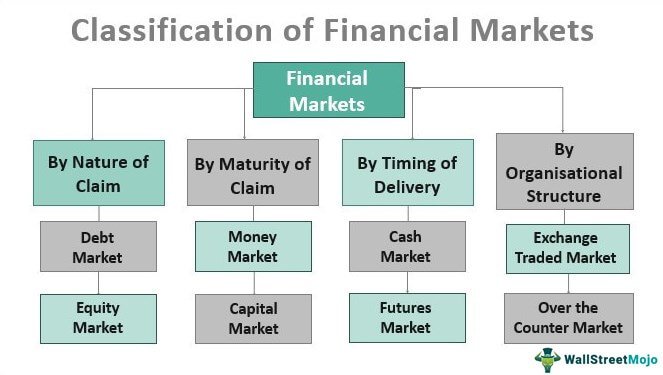Are you a gig worker looking for ways to effectively plan your taxes on gig economy income? We’ve got you covered! Planning for taxes may seem daunting, but with the right approach, you can ensure a smooth and hassle-free process. In this article, we will discuss practical tips and strategies on how to plan for taxes on gig economy income. From understanding your tax obligations to organizing your financial records, we’ll provide you with valuable insights to navigate this aspect of your freelance career. So, let’s dive in and discover how to plan for taxes on gig economy income!
How to Plan for Taxes on Gig Economy Income
Introduction
The gig economy has taken the world by storm, offering individuals the opportunity to earn income through various freelance, part-time, or on-demand work. With the flexibility and freedom that gig work provides, it’s important for gig workers to understand how their income is taxed and how to effectively plan for their tax obligations. In this article, we’ll delve into the key considerations and strategies for planning taxes on gig economy income.
Understanding Gig Economy Income
Before diving into the tax planning strategies, it’s crucial to have a clear understanding of what constitutes gig economy income. Gig workers typically earn income through platforms like ride-sharing services, freelance websites, delivery apps, or online marketplaces. These income sources can include:
- Ride-sharing services like Uber or Lyft
- Freelance work such as graphic design or writing
- Delivery services like DoorDash or Postmates
- Rentals through platforms like Airbnb or VRBO
- Task-based services like TaskRabbit
It’s important to note that gig workers are often classified as independent contractors rather than employees, which has implications for tax purposes.
Determining Your Tax Obligations
As a gig worker, you are responsible for reporting and paying taxes on your income. Understanding your tax obligations is crucial to ensure compliance and avoid any potential penalties. Here are some key considerations:
1. Self-Employment Taxes
One of the first things gig workers need to be aware of is self-employment taxes. Unlike traditional employees, gig workers are responsible for paying both the employer and employee portions of Social Security and Medicare taxes. This means you’ll need to calculate and set aside funds for these taxes throughout the year.
2. Estimated Tax Payments
Gig workers often receive income that is not subject to automatic tax withholding. Instead, they are required to make quarterly estimated tax payments to the IRS. Failing to make these payments or underpaying can result in penalties and interest. It’s important to accurately estimate your income and expenses to calculate the appropriate amount to pay each quarter.
3. Tax Deductions and Credits
Gig workers have the opportunity to take advantage of tax deductions and credits to lower their overall tax liability. Some common deductions include:
- Home office expenses
- Mileage or vehicle expenses
- Business-related travel expenses
- Health insurance premiums
- Retirement contributions
Additionally, certain credits like the Earned Income Tax Credit (EITC) may be available based on your income and eligibility. It’s important to keep detailed records of your expenses and consult with a tax professional to ensure you’re maximizing deductions and credits.
Strategies for Effective Tax Planning
Proactive tax planning can help gig workers minimize their tax liability and avoid any surprises come tax season. Here are some effective strategies to consider:
1. Keep Detailed Records
Maintaining accurate and organized records of your income and expenses is crucial for effective tax planning. This includes keeping track of receipts, invoices, and bank statements. By having a clear picture of your financial transactions, you can accurately report your income and maximize deductions.
2. Establish Separate Business Accounts
To simplify your tax reporting and separate your business finances from personal finances, it’s advisable to open separate bank accounts for your gig work. This allows you to easily track income and expenses and ensures that you’re not mixing personal funds with business funds.
3. Utilize Accounting Software or Tools
Consider using accounting software or tools designed for self-employed individuals to help streamline your record-keeping and track your income and expenses. These tools can provide valuable insights into your financial health and make tax preparation more efficient.
4. Consult with a Tax Professional
Navigating the tax intricacies of the gig economy can be complex, so it’s often beneficial to seek guidance from a tax professional. They can provide tailored advice, ensure you’re taking advantage of all deductions and credits, and help you stay compliant with tax regulations.
5. Stay Informed about Tax Law Changes
Tax laws and regulations are subject to change, so it’s important to stay informed and up to date with any updates that may impact your gig work. Subscribe to reliable sources of tax information or consult with a tax professional to ensure you’re aware of any changes that could affect your tax planning strategies.
As the gig economy continues to thrive, it’s crucial for gig workers to understand how to effectively plan for their tax obligations. By comprehending their tax obligations, taking advantage of deductions and credits, and implementing effective tax planning strategies, gig workers can ensure they meet their tax obligations while maximizing their income. Remember to consult with a tax professional for personalized advice based on your specific situation. Stay proactive, organized, and informed to stay ahead in the gig economy.
How to Plan Your Taxes as a Gig Worker (Self-Employed)
Frequently Asked Questions
Frequently Asked Questions (FAQs)
How should I plan for taxes on gig economy income?
Planning for taxes on gig economy income is essential to ensure compliance with tax regulations and optimize your tax liability. Here are some key considerations:
What types of income are included in the gig economy?
The gig economy encompasses various types of income, such as freelance work, on-demand services, renting assets, and online selling. It is crucial to track all sources of income for tax purposes.
Do I need to report my gig economy income?
Yes, regardless of the amount, all gig economy income must be reported on your tax return. Failure to do so can lead to penalties and potential legal consequences.
What documents do I need to keep for tax purposes?
It is important to maintain records of your earnings and expenses related to your gig economy activities. Examples include 1099 forms, invoices, receipts, and bank statements. These documents help support your tax deductions and report accurate income.
How can I estimate my tax liability for gig economy income?
To estimate your tax liability, you can use the IRS’ Form 1040-ES or consult a tax professional. By considering your projected income, deductions, and tax credits, you can get a rough idea of what you might owe.
Are there any tax deductions available for gig economy workers?
Yes, gig economy workers may be eligible for several tax deductions. Common deductions include business-related expenses (such as mileage, supplies, and equipment), home office expenses, and self-employment taxes.
Should I make estimated tax payments as a gig economy worker?
As a gig economy worker, you may be required to make quarterly estimated tax payments if your tax liability exceeds a certain threshold. This helps you avoid underpayment penalties and spreads out your tax payments throughout the year.
How can I avoid tax surprises as a gig economy worker?
To avoid tax surprises, it’s important to consistently track your income and expenses, maintain good records, and set aside a portion of your earnings for taxes. Consulting a tax professional can also provide guidance on minimizing your tax liability.
Final Thoughts
In conclusion, planning for taxes on gig economy income is crucial for freelancers and independent contractors. By understanding the tax implications and obligations associated with this type of work, individuals can effectively manage their finances and avoid any potential penalties or surprises from the tax authorities. Key steps to consider include keeping detailed records of income and expenses, setting aside a portion of earnings for taxes, and exploring deductions and credits specific to gig economy workers. Seeking advice from a tax professional can also provide valuable guidance in navigating the complexities of the tax system. Overall, taking proactive steps to plan for taxes on gig economy income is essential to ensure financial stability and compliance with the law.



